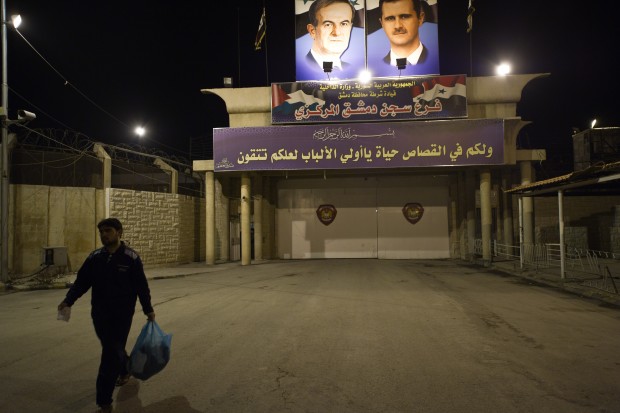Syrian regime profits from enforced disappearances
According to Amnesty International report published Thursday, the Syrian state is profiting from enforced disappearances via a black market of bribes paid in exchange for information on missing people.
In a report titled, “Between Prison and the Grave: Enforced Disappearances in Syria”, the London-based rights group accuses Syrian officials and prison staff of benefiting from bribes ranging range “from hundreds to tens of thousands of dollars”, paid by desperate family members to “middlemen” and “brokers” in exchange for information on their loved ones, according to France24.
One rights activist said such bribes had become “a big part of the economy”. As many as 65,000 people have been detained since 2011 in a campaign of enforced disappearances that Amnesty considers a crime against humanity.
The human rights group says those taken are usually held in overcrowded detention cells in appalling conditions and cut off from the outside world. Many die as a result of rampant disease, torture and extrajudicial execution, it adds according to a BBC report.
The rights watchdog interviewed relatives of the disappeared who said they had been forced to pay bribes to middlemen with close ties to the authorities to gain information on the fate of their family members.
Amnesty said it had attempted to discuss the issue with the Syrian authorities and was awaiting a response. The Syrian government has regularly dismissed reports accusing the state of human rights abuses.
At times huge sums are paid for false information. The Amnesty report cites the case of a man whose three brothers were disappeared in 2012. He told Amnesty International he had borrowed more than $150,000 in failed attempts to find out where they are. He is now in Turkey working to pay back his debts.
The report said family members who tried to inquire about disappeared relatives were often at risk of arrest or being forcibly disappeared themselves, which gave them little choice but to resort to using middlemen.
One man who asked the authorities about his brother’s whereabouts was detained for three months and spent several weeks in solitary confinement.
“Enforced disappearances are part of a deliberate, brutal campaign by the Syrian government,” said Philip Luther, director of Amnesty’s Middle East and North Africa program.

























































